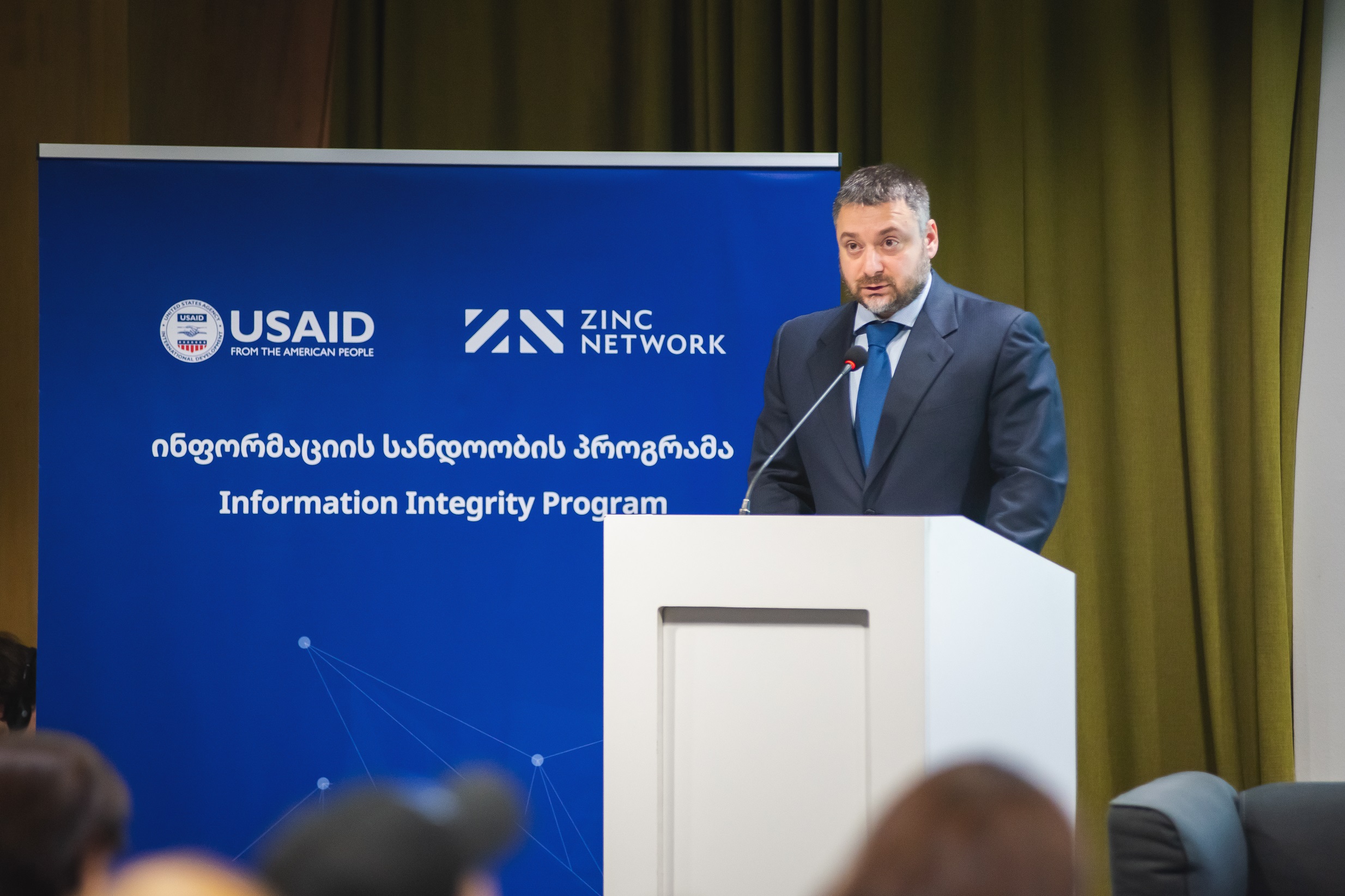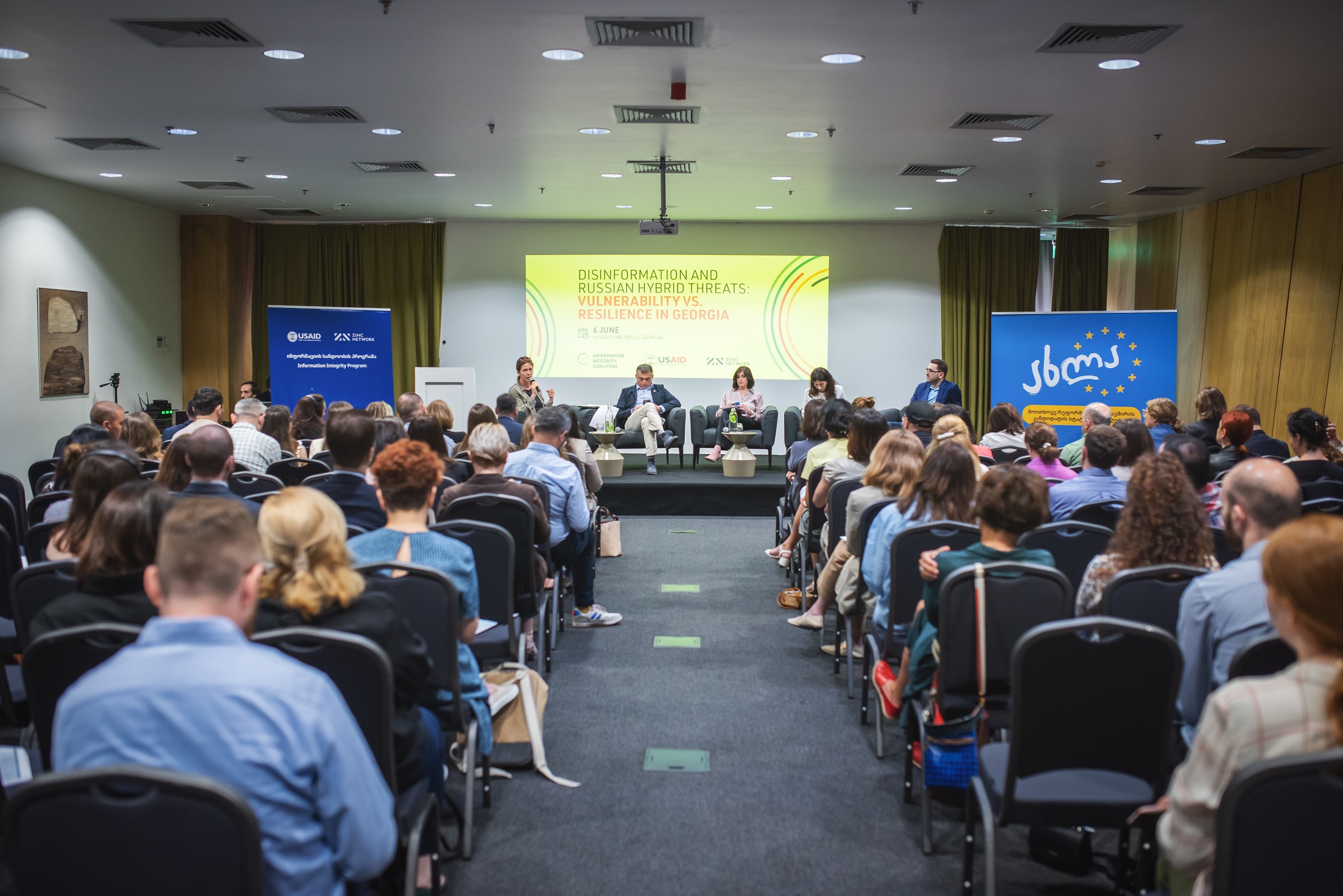


 On June 6, the Institute for Development of Freedom of Information (IDFI) held a presentation of the study - "Russian Capital and Russian Connections in Georgian Business" within the framework of the conference organized by the "Information Integrity Coalition" and presented the main findings of the study.
On June 6, the Institute for Development of Freedom of Information (IDFI) held a presentation of the study - "Russian Capital and Russian Connections in Georgian Business" within the framework of the conference organized by the "Information Integrity Coalition" and presented the main findings of the study.
IDFI conducted research on the construction sector, major investments, tourism/hospitality, and road transport. After the start of the war with Ukraine by Russia (March 2022) and the so-called "partial mobilization" (October 2022), hundreds of thousands of Russian citizens entered Georgia, some of whom remained in the country. This had a major impact on the sectors reviewed in the third stage of the study. The study also provides updated information as of April 2023.
Russia's influence on major areas of Georgian business, such as the energy sector, oil, gas, hydro resources, engineering, mining, tourism, mineral waters, banking/investments, is noticeable. These connections and influences often cross the boundaries of business and extend into the media, politics, civil society, and related fields. That is why, for the democratic development of Georgia, it is important to reduce economic dependence on the Russian Federation, diversify markets, and attract more Western investments.
The conference organized by the "Information Integrity Coalition" was opened by the executive director of the coalition's chairman organization, the Institute for Development of Freedom of Information (IDFI), Giorgi Kldiashvili and the deputy director of USAID Georgia's Office of Democracy, Rights and Governance, Lisa Kovack.
The executive director of IDFI noted that "disinformation and anti-Western propaganda significantly harm the national interests of Georgia and its Euro-Atlantic aspirations, increase the polarization of citizens, and try to hinder the country's democratic development by having a harmful influence on public processes. The harmful consequences of misinformation are especially severe when its target is elections, public health, or other political processes taking place within the country. In the face of the mentioned threats, it is necessary to develop a unified and agreed approach of the society, which ensures access to reliable information for citizens and protects them from harmful misinformation".
 The conference was devoted to the discussion of hybrid threats from Russia, the analysis of various vectors of Kremlin influence, and the existing (or non-existent) policy of the Georgian state. The conference aimed to assess the vulnerability ecosystem in the information space, facilitate the dissemination of information on Georgia's emerging challenges, and discuss what key actors should do to achieve sustainability and information credibility.
The conference was devoted to the discussion of hybrid threats from Russia, the analysis of various vectors of Kremlin influence, and the existing (or non-existent) policy of the Georgian state. The conference aimed to assess the vulnerability ecosystem in the information space, facilitate the dissemination of information on Georgia's emerging challenges, and discuss what key actors should do to achieve sustainability and information credibility.
Several panel discussions were held with members of the Information Reliability Coalition, politicians, academia, media, and experts.
The coalition members presented studies prepared on the state's response to disinformation and hybrid threats. These studies analyzed policy documents, evaluated institutional mechanisms, and examined the process of implementing policy-defining documents. In this session, the panelists and the audience discussed the measures taken by the Georgian government to overcome the challenges related to hybrid warfare.
Panel discussions at the conference touched on the Kremlin's mechanisms of influence, such as the use of money, corruption, Russian capital, as well as the instrumentalization of history, the distortion of memory, and identity for propaganda narratives.
The conference ended with a discussion on how to strengthen resistance against disinformation and propaganda. The "Information Integrity Coalition" will hold a large-scale conference every year on important issues relevant to society.
The study was prepared with the assistance of the United States Agency for International Development (USAID) and the Zinc Network. The opinions expressed in the research are those of IDFI and do not necessarily reflect the views of USAID, the United States Government, or Zinc Network.